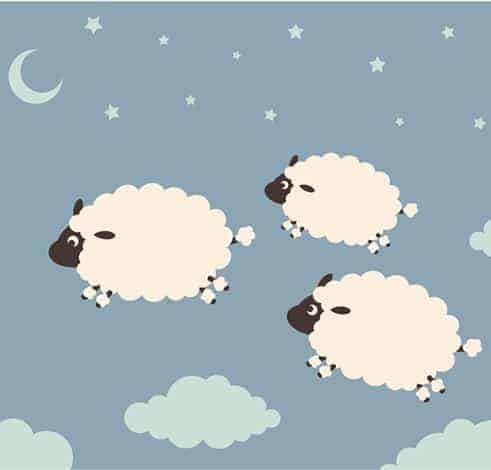
BY CAYLA RAMEY
peer reviewed by marita schauch, bsc, nd
Insomnia and other sleep problems can be triggered or affected by stress. Insomnia affects 10 to 15 percent of the general population. Stress can cause hyperarousal, which can make it difficult to fall asleep. The Mayo Clinic suggests that adults get around nine hours of sleep every night—though studies have shown that the average adult gets between six to seven hours. Recent studies have associated insomnia with stress and stress-induced issues (Roehrs, 2004). Sleep has been ultimately deemed as a complex process (Carskadon, 2011) and researchers have yet to discover its essential purpose (Goldsmith, 2006; Horne, 2006). Several theories suggest that sleep allows the processing of affective information, regulates body temperature, and restores the central nervous system (Goldsmith, 2006; Schwartz, 2008), but they have never been supported definitively. However, it is widely accepted that sleep is an intricate process and is associated with personal wellbeing and heath (NINDS, 2008). Often, a general practitioner might suggest sleeping pills, such as Ambien, Sonata or Lunesta, which help reduce the time it takes to fall asleep. Today, there are more natural products, specifically valerian root and melatonin, that one can take to help ease the mind.
VALERIANA OFFICINALIS (VALERIAN) – 120-200MG DAILY
Valerian is commonly used for sleep disorders, especially insomnia. While it’s not completely clear how valerian works, scientists believe it increases the body’s amount of gamma aminobutyric acid (GABA). Researchers found that this alternative may need to be taken for a few weeks before it begins to improve sleep quality. Even still, it’s proven to be gentler and have fewer side effects than sleeping pills. Because of this, valerian makes it an ideal natural substitute to help ease stress-induced sleeping disorders. While valerian can come in many different forms, capsules are the most popular method. Take them a couple hours before bed up to six weeks after effects are noticed.
EVIDENCE
In one study, 128 volunteers were given 400mg of an aqueous extract of valerian that contained 60mg valerian and 30mg hops, and a placebo (Leathwood, 1982). The positive effect of the valerian extract was noticed in 61 participants who identified themselves as poor sleepers. In fact, the extract improved the amount of time it took the participants to fall asleep as well as their sleep quality and number of nighttime awakenings (Leathwood, 1982). Researchers say it’s difficult to tell if the valerian root has any positive effect on insomnia, as having insomnia wasn’t a requirement for participation.
MELATONIN – 1-3MG DAILY
Melatonin has become a popular sleep aid in recent years. What many people don’t know is that this hormone occurs naturally in the body and is released from the pineal gland in the brain. Melatonin levels rise at night, which correlates with a decrease in cortisol. Late-night stress can result in elevated nighttime cortisol levels (James, 2007). Melatonin has also been found to affect the balance between DHEA and cortisol (Pawlikowshi, 2002). The typical dose that is recommended is 1 to 3 mg daily.
EVIDENCE
According to the University of Maryland Medical Centre, a few clinical studies suggest that when taken for a short period of time, melatonin may reduce the time it takes to fall asleep, increasing the number of sleeping hours, and boosting daytime alertness.
In a study involving 1683 adults and children diagnosed with primary sleep disorders, melatonin reduced sleep latency significantly (Ferracioli-Oda, 2013). The study found that melatonin can improve sleep quality and increases total sleep time. Ultimately, these researchers believe that melatonin has a role in the treatment of insomnia due to its benign side-effect profile (Ferracioli-Oda, 2013). VM












